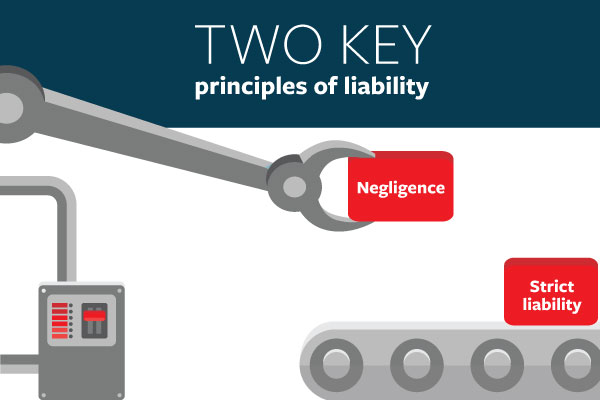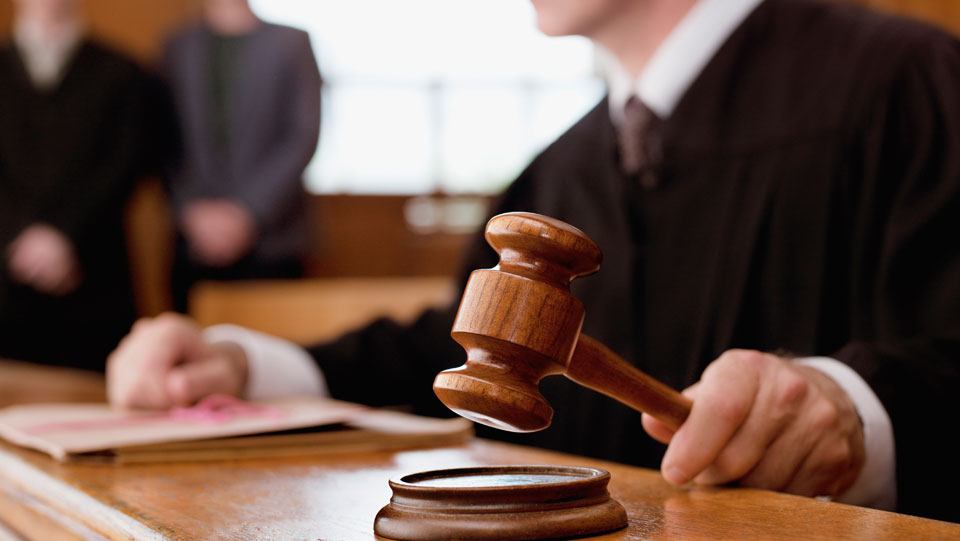Two Types of Liability

An important part of understanding your responsibility for products and services is to understand how that responsibility is defined by law. Although various states and countries have differing laws relating to enforcement of legal liability, two legal theories typically apply to product liability: negligence and strict liability of defective products.
Due to the complexity of these legal theories, you should consult with a qualified attorney. The following is only an introduction to these two theories to help familiarize you with the concepts that you may encounter in product liability claims.

Negligence
In the context of product liability, a claim for negligence focuses on the conduct of the manufacturer or product seller, and the alleged failure to use reasonable care in some aspect when manufacturing or selling the product. For example, an injured consumer may argue that a manufacturer failed to use reasonable care in its inspection or quality controls, or that it failed to employ reasonable care in product and component part testing. An injured consumer may argue that the seller failed to assemble or install the product with reasonable care.
As a defense to a negligence claim, the manufacturer or product seller may argue that the injured consumer failed to use the product with reasonable care. For example, a manufacturer or product seller may argue that the injured consumer failed to read and follow clear instructions. In the event of a lawsuit, the conduct of all parties is typically considered in the context of a negligence claim.
Strict Liability
Under the theory of strict liability, the focus shifts from the conduct of the product seller or manufacturer to the product itself, and whether the product is defective, regardless of the degree of care exercised by the manufacturer or product seller. What constitutes a “defective” product under this theory may vary greatly between various states and countries, but generally, it requires a showing that the product presents a substantial likelihood of harm to consumers due to one or more of the following:
- Design defect – a product may be found to be defective when the design does not include a necessary and feasible safety feature.
- Manufacturing defect – a product may be found to be defective when it is not manufactured in compliance with the design.
- Warnings and instructions defect – a product may be found to be defective when its communications (instructions, warnings, manuals, labels) accompanying or affixed to it are inadequate, inappropriate, misleading or confusing.
Understanding the legal theories of liability can help you understand the risks you face. Travelers recommends you look at your entire product life cycle in a holistic manner to better understand your liability exposures and identify opportunities to better protect your business, brand and reputation. We work with businesses of all types and sizes every day, and our experience can help you work with your insurance representative to construct a risk mitigation program that fits the unique needs of your business.



